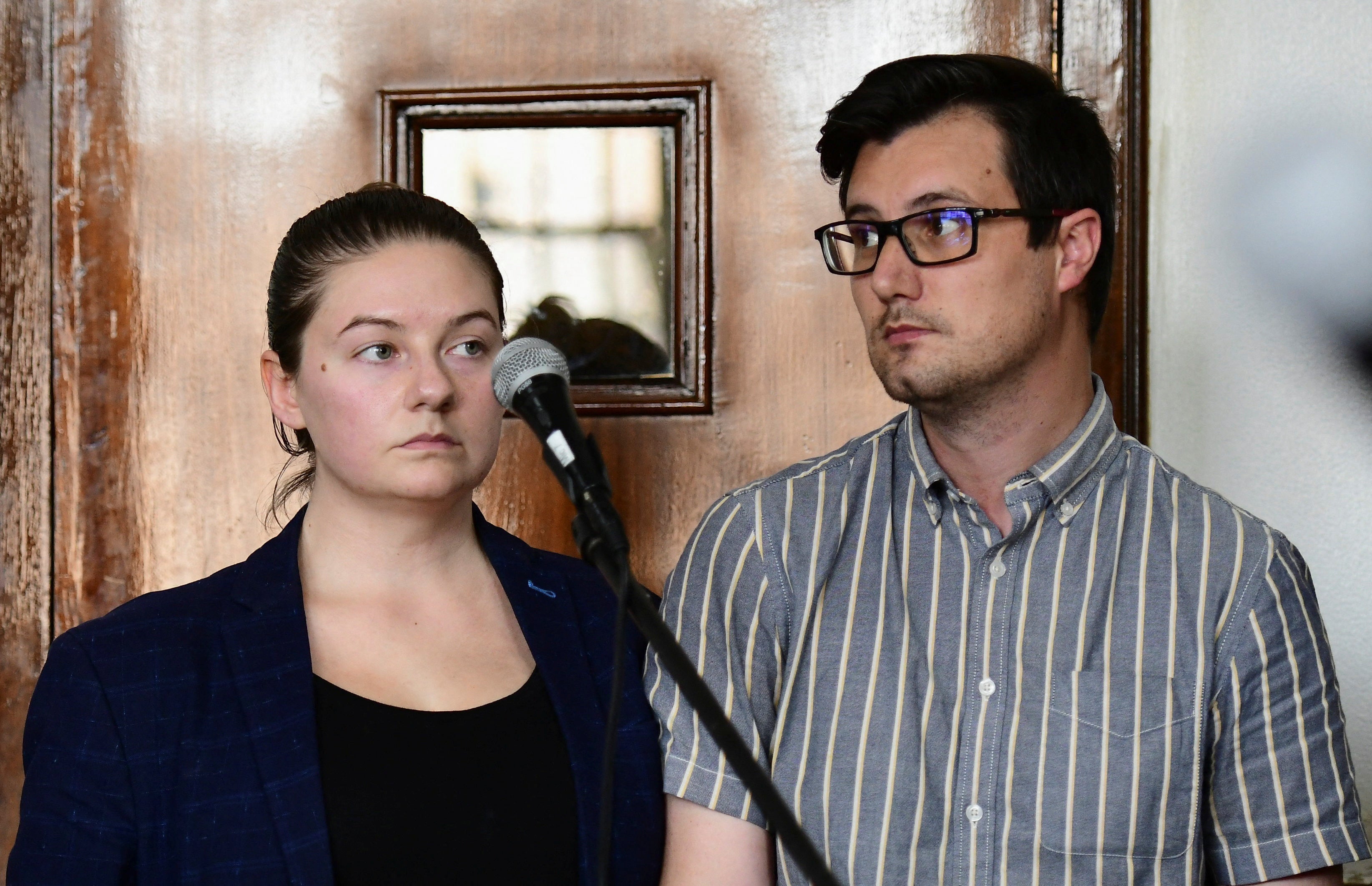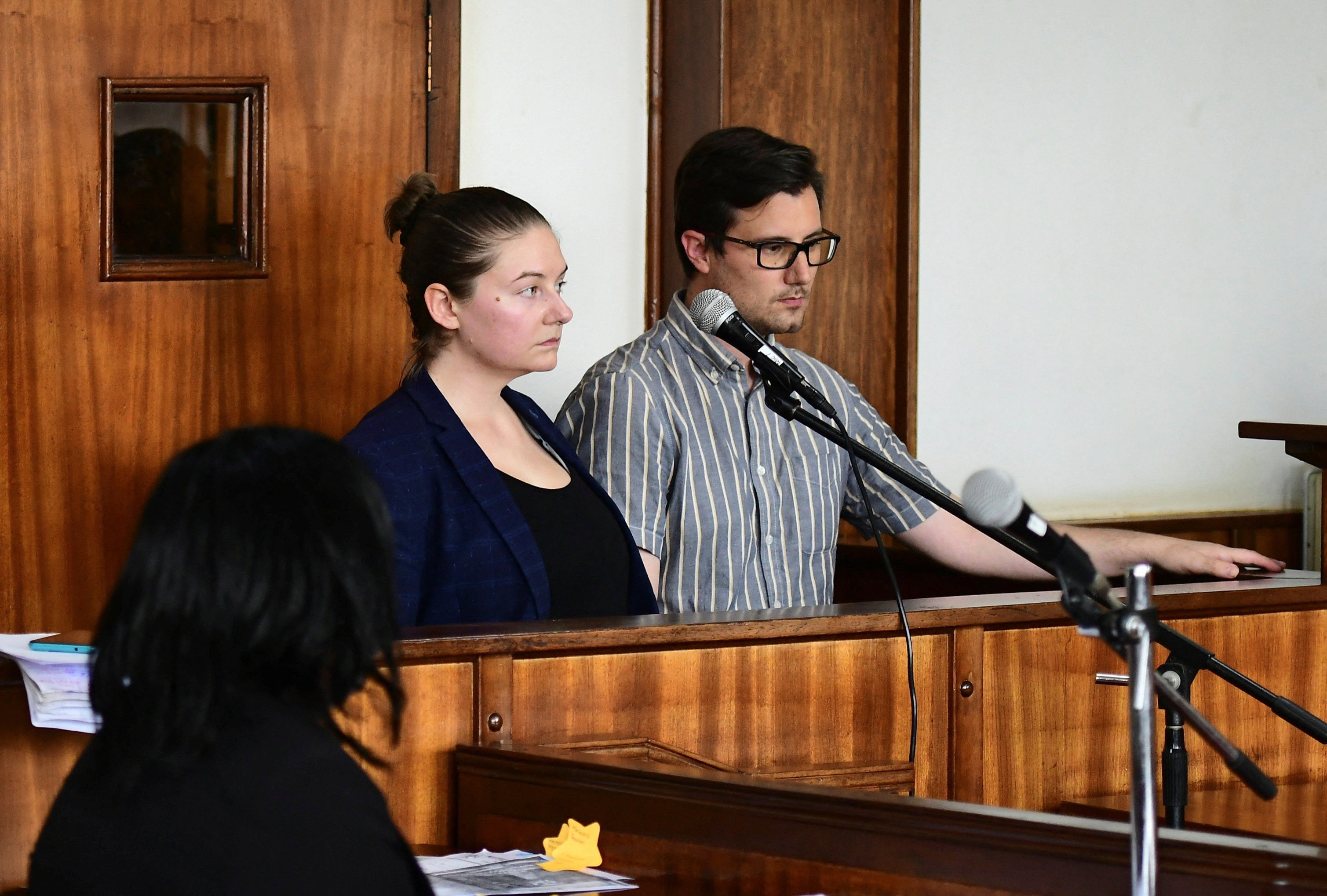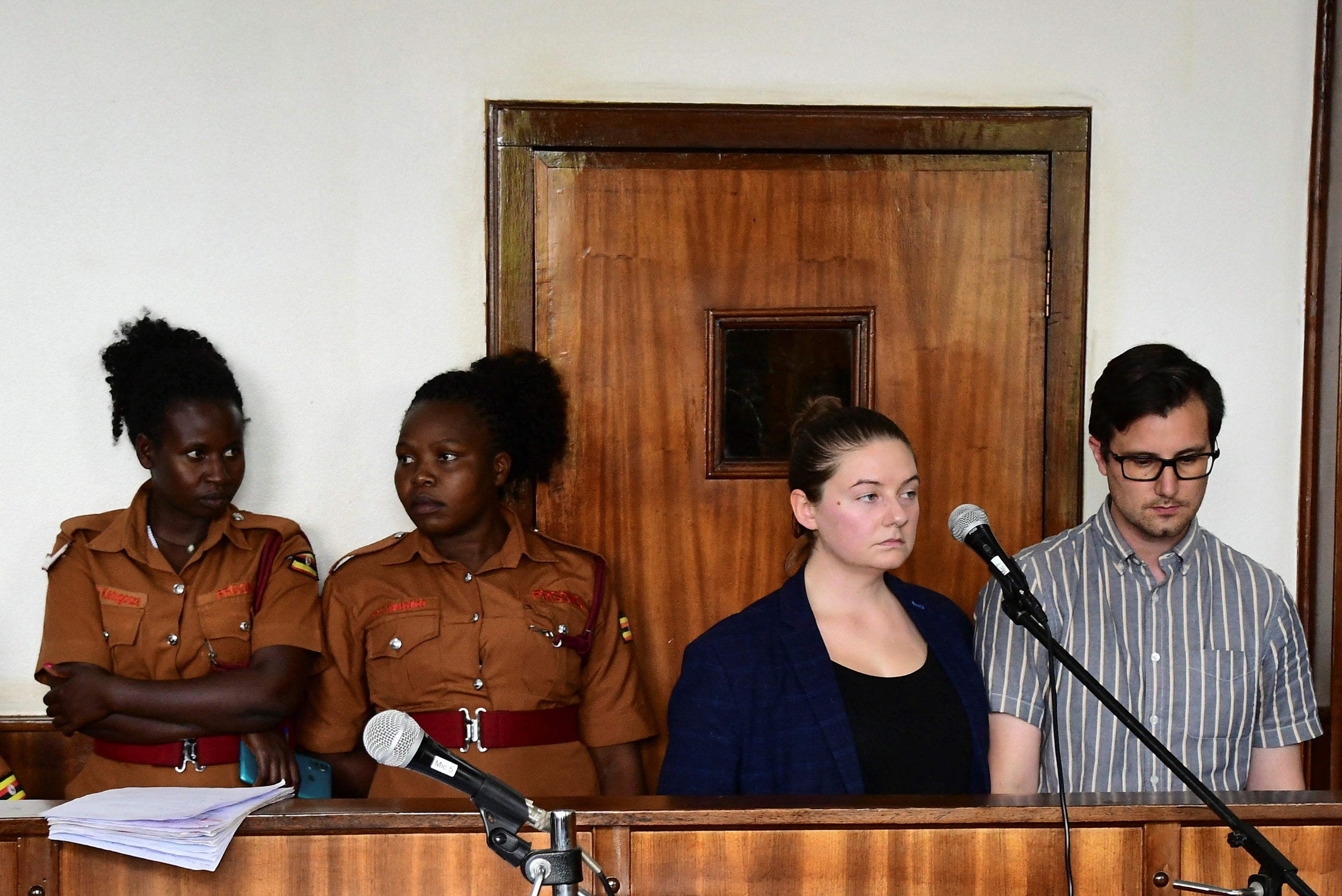The Independent's journalism is supported by our readers. When you purchase through links on our site, we may earn commission.
An American couple moved to Uganda to become foster parents. They now could face death in child torture case
Nicholas Spencer, a former congressional staffer, and his wife Mackenzie, once a healthcare consultant, quit their jobs in DC in 2017 and moved to Uganda. Five years later, they are making international headlines for their arrest on child torture charges, Andrea Blanco reports


Your support helps us to tell the story
From reproductive rights to climate change to Big Tech, The Independent is on the ground when the story is developing. Whether it's investigating the financials of Elon Musk's pro-Trump PAC or producing our latest documentary, 'The A Word', which shines a light on the American women fighting for reproductive rights, we know how important it is to parse out the facts from the messaging.
At such a critical moment in US history, we need reporters on the ground. Your donation allows us to keep sending journalists to speak to both sides of the story.
The Independent is trusted by Americans across the entire political spectrum. And unlike many other quality news outlets, we choose not to lock Americans out of our reporting and analysis with paywalls. We believe quality journalism should be available to everyone, paid for by those who can afford it.
Your support makes all the difference.In 2017, Nicholas and Mackenzie Spencer, both 32, left behind their lives in Washington DC and moved to Uganda.
Mr Spencer, then a congressional staffer, and his wife, a former healthcare consultant, quit their jobs in America to become foster parents and begin their “humanitarian work” in the East African nation.
Five years later, they would be making international headlines — not for their activism — but for their arrest on charges of aggravated torture and aggravated child trafficking. The couple, now being held at a Ugandan maximum security prison, stands accused of subjecting their 10-year-old foster child to cruel punishments with the excuse that he was “stubborn, hyperactive, and mentally unstable, according to the Uganda Police Force.
Ugandan prosecutors said the Spencers deprived the boy, who is reportedly HIV positive, of clothing, education, warm food and a bed. Authorities added that the foster parents, who first retained custody of the children in the town of Jinja before moving to the capital, kept the boy through “abuse of position of vulnerability for purposes of exploitation,” the Daily Monitor reports.
If convicted of child trafficking charges, the couple could face the death penalty, the state prosecutor said during a court hearing on Wednesday. An attorney for the couple has dismissed the accusations, telling local media that the case was a “fishing expedition” by prosecutors, according to Reuters.
The alleged torture
The Spencers, originally from South Carolina, have been held at the Luzira prison since 9 December, after a home aid alerted authorities of the alleged torture taking place in their household.
“I wanted to leave the job, but I knew if I left without doing something about it, the torture would continue,” the woman told the Monitor under the condition of anonymity.
She claimed that the Spencers only inflicted punishment on the 10-year-old boy because he was “stubborn and hyperactive ...[and] mentally unstable.”
Neighbours and teachers of the victim have since come forward with similar allegations of child torture, Ugandan Police said in a statement.
According to authorities, investigators found that the Spencers kept the boy barefoot and naked throughout the day and “would occasionally make him squat in an awkward position, with his head facing the floor and hands spread out widely.”
The boy was allegedly forced to sleep on a wooden platform, without a mattress, and “was served cold meals from the fridge.”
Filed documents obtained by the Monitor state that a camera was placed inside the room where the boy was kept in order to monitor his movements.
The outlet also reported that the victim was forced to stay home and not go to school for four months. According to police, he was a student at Dawn’s Children’s Center in Ntinda, a division of Kampala.
The alleged abuse took place between 2020 and the Spencers’ arrest earlier this month, police said.

A foster family
When the young couple moved to Uganda in 2017, Mr Specer first took a job as a supply chain director at AKOLA Project, a jewellery company in Jinja, a city in southern Uganda.
In Washington, he had worked as a press and legislative assistant for a congressman, according to his LinkedIn.
A year after the Spencers moved, they began to foster three children from the Welcome Ministry before moving to Kampala, the capital.
But in 2019, Ms Spencer, who reportedly suffers from a debilitating disease that affects her joint and spine, had to travel to the US to get surgery for her health concerns.
The illness previously affected Ms Spencer’s mobility before a life-saving surgery at the age of 18, according to a Washington Post report from 2014. She went on to graduate from the University of South Carolina Upstate and was hired as a healthcare consultant in DC, according to the report.
Seven spinal surgeries later and while living in Uganda as a new foster mother, the disease returned, Ms Spencer wrote in a GoFundMe to raise funds for her medical expenses. Back in the US for a new surgery, Ms Spencer wrote about the challenge of being apart from her family, and how technology had helped them.
“Nick and the kids are doing very well and have great support from our Uganda family,” she wrote in the description of the fundraiser. “We are so thankful for technology that allows us to video chat twice every day. This has been incredibly helpful for all of our hearts during this difficult time!”
Ms Spencer raised nearly $5,000 on the page and also welcomed donations on her Target and Amazon registries for “items we need to bring back with us including items for the children, home, personal care, and other items we do not have access to in Uganda.”
A friend of hers, she wrote, also organised an “adoption shower.”
After Ms Spencer returned to Uganda, her husband took on a job at a company of design services as a marketplace leader.

Child torture and trafficking charges
Following the arrests, Ugandan police reminded local authorities to monitor closely foster parents in the region, saying the alleged torture against the victim could have been avoided.
“We want to thank the neighbours, teachers and the victim, for taking the courage to stand up against acts of child torture,” the statement read. “We also call upon all probation offices and social workers, to continuously monitor the well-being of children in foster homes, to guard against handing over vulnerable children to abusive foster parents, or other forms of harm.”
On Wednesday, the Spencers were charged with aggravated child trafficking, a crime that carries a maximum penalty of death.
They were not allowed to enter a plea as their case can only be heard at High Court, prosecutors told Reuters.
The children are currently at a temporary foster home as they await a definitive placement.
It is unclear what legal representation the Spencers have retained. The Independent has reached out to the US Embassy in Uganda for comment.



Join our commenting forum
Join thought-provoking conversations, follow other Independent readers and see their replies
Comments